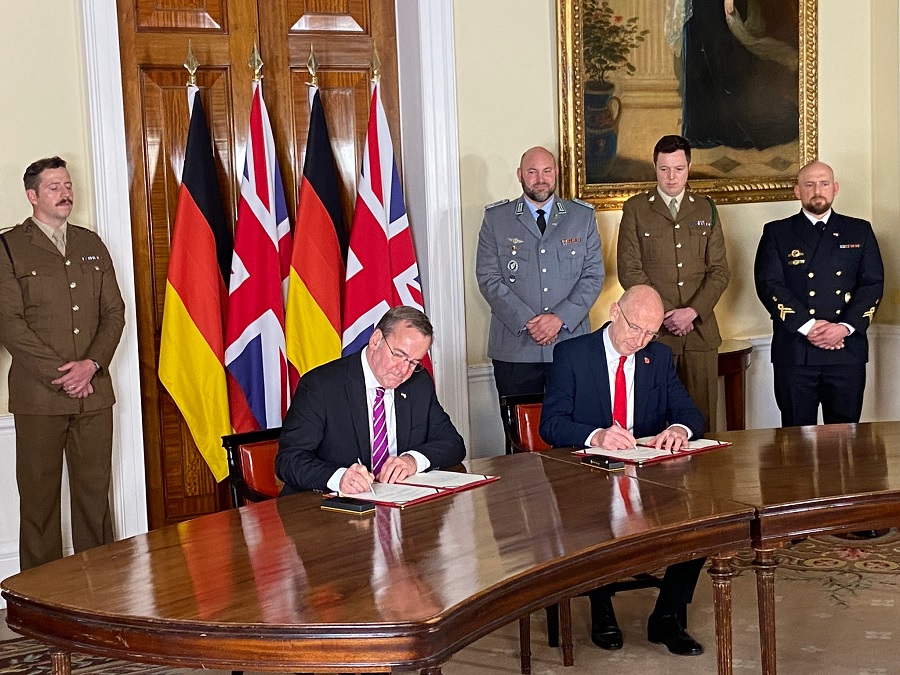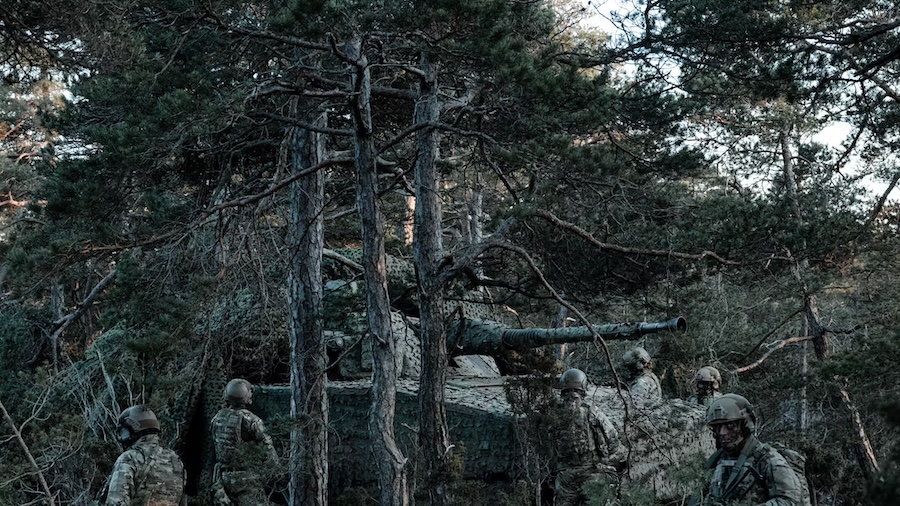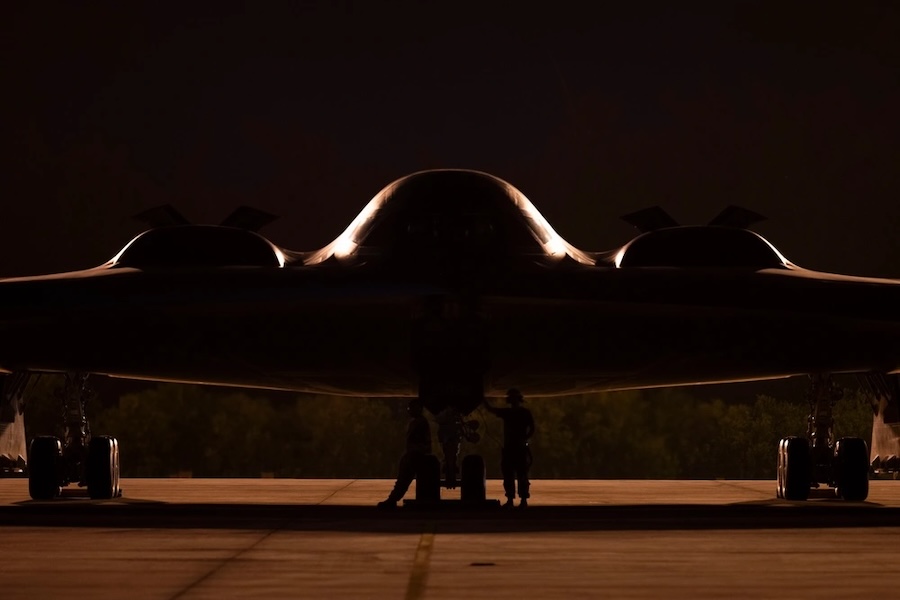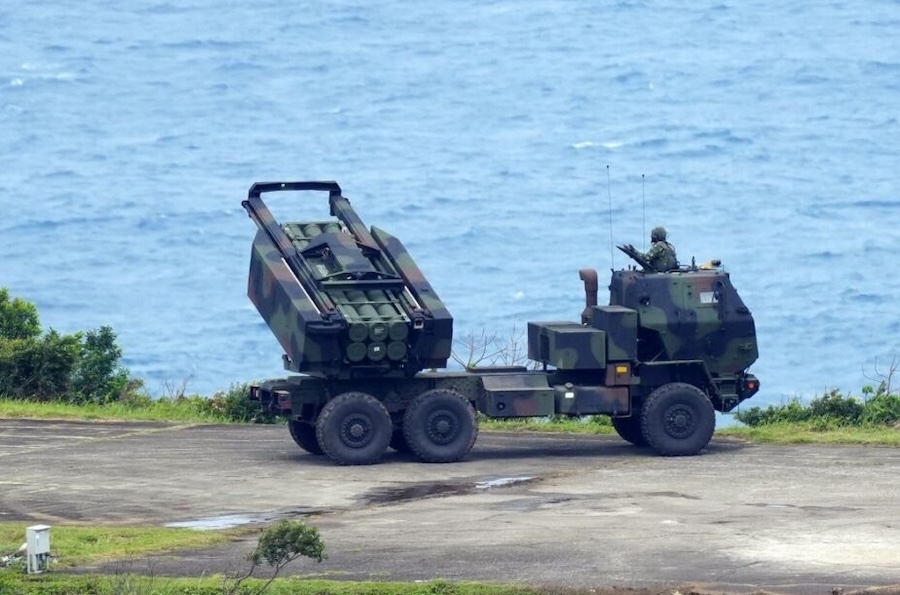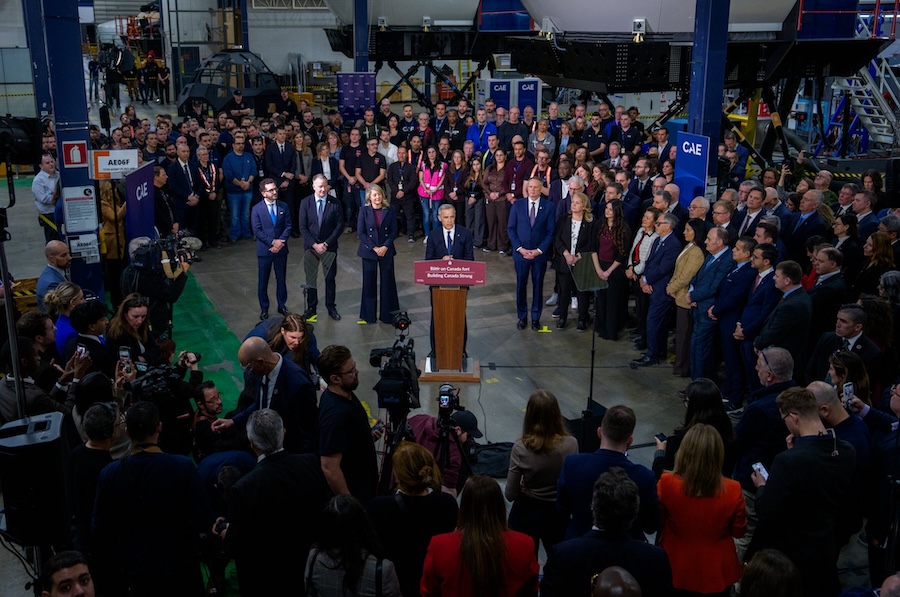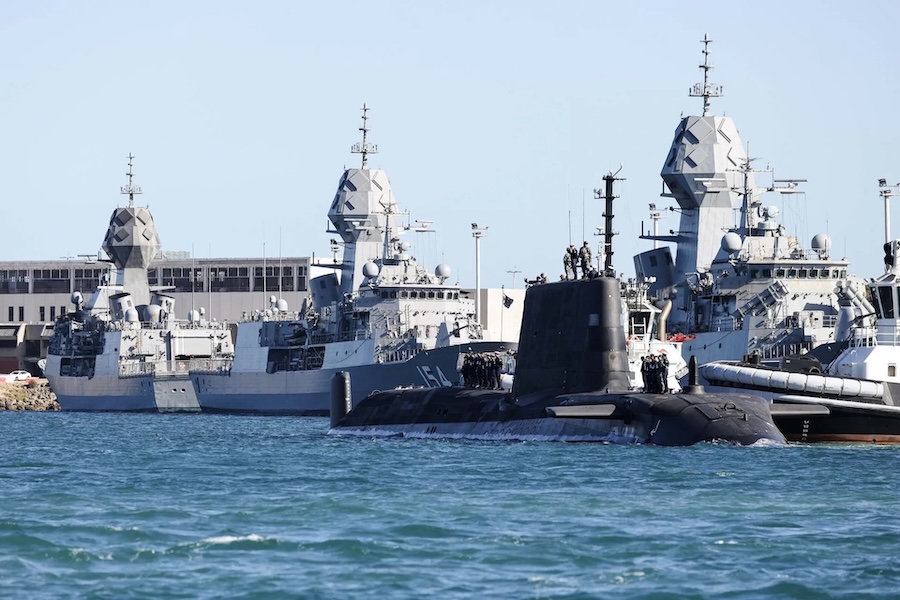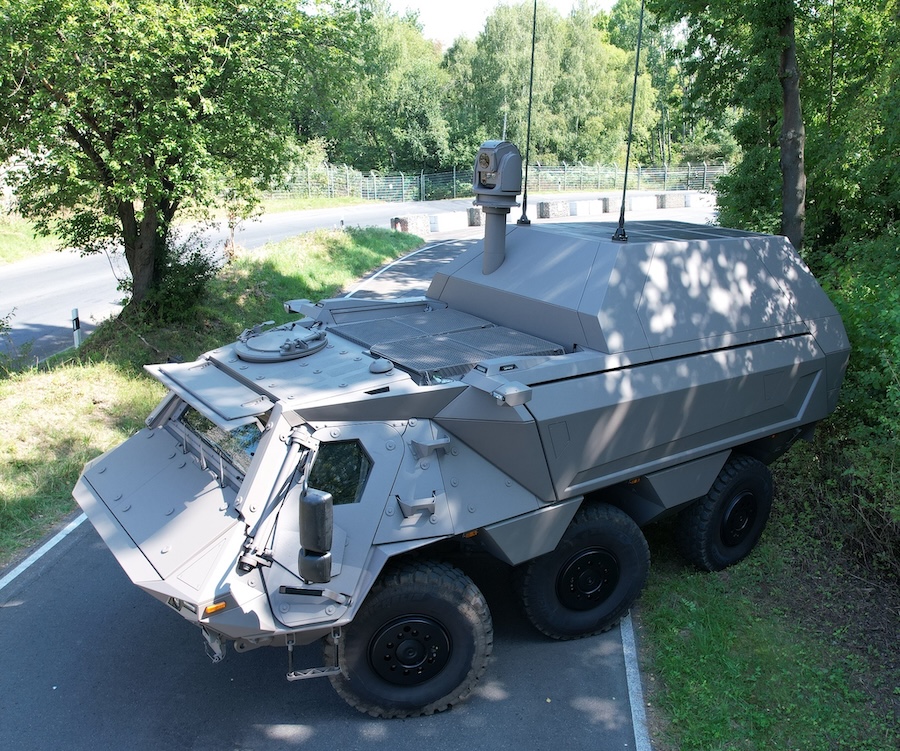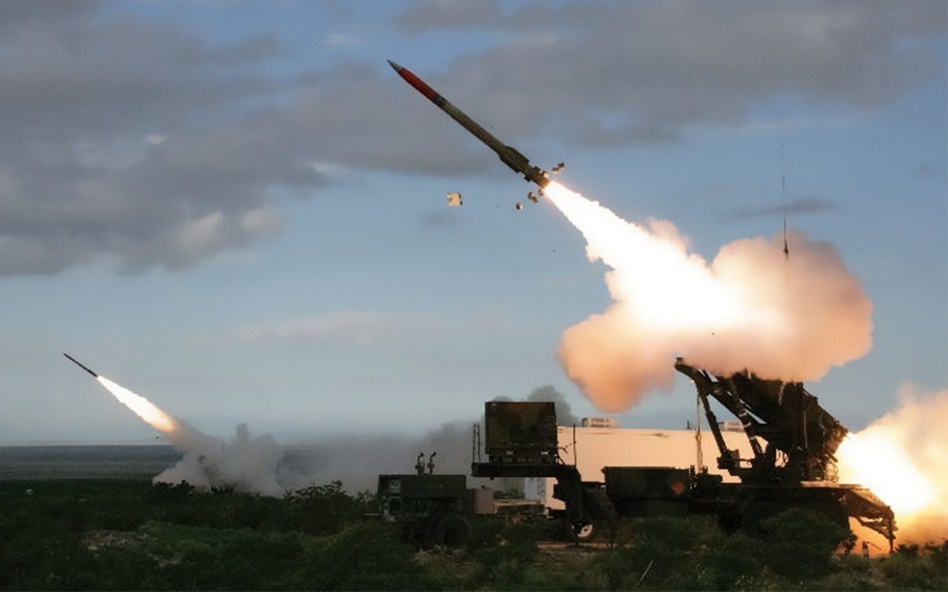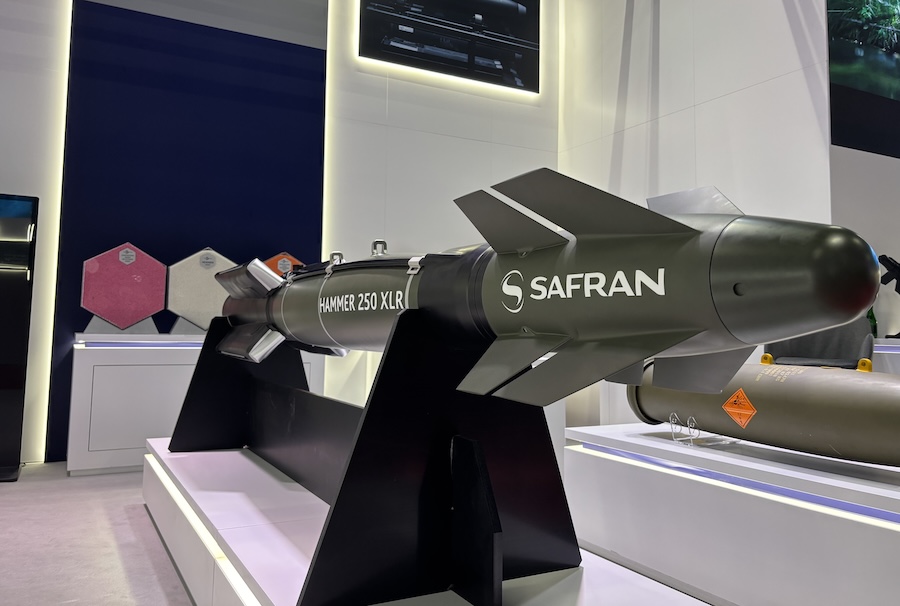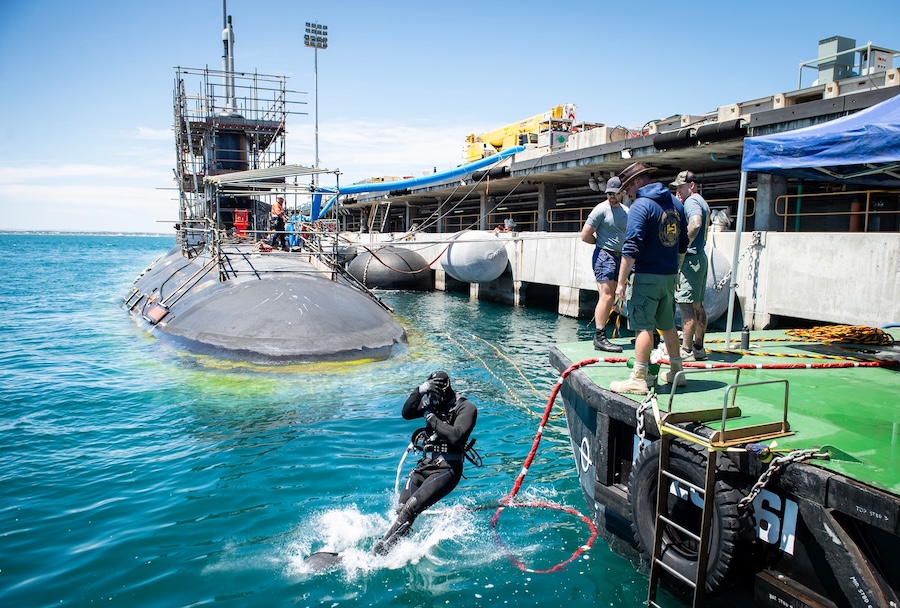The agreement underscores the deepening relationship between two of Europe’s largest defence spenders and focuses on increasing their military cooperation across all domains: air, land, sea, space, and cyber. It marks a significant moment for NATO and European security, highlighting the crucial role both countries play in bolstering collective defence capabilities. By bringing the UK and Germany closer together, the Trinity House Agreement not only enhances defence readiness but also supports economic growth and job creation, paving the way for substantial new investments.
NEWS: Today, the United Kingdom and Germany will sign a landmark agreement that will bring our two nations’ Armed Forces closer together than ever. 🇬🇧🤝🇩🇪
What this deal will deliver 👇
— Ministry of Defence 🇬🇧 (@DefenceHQ) October 23, 2024
One of the standout features of the agreement is the establishment of a new artillery gun barrel manufacturing facility in the UK, which will be operated by Germany’s Rheinmetall AG. This factory, the first of its kind in the UK in over a decade, will produce large-calibre gun barrels, supporting more than 400 new jobs and generating nearly half a billion pounds in economic investment over the next ten years. The barrels will be manufactured using British steel produced by Sheffield Forgemasters, which will mark a return to large-calibre gun barrel production in the UK after a 20-year hiatus.
The Trinity House Agreement also focuses on the development of new, cutting-edge long-range strike weapons. These new systems will have greater range and precision than current market options, enhancing the ability of both nations to respond effectively to modern threats. These developments will include working on advanced missile systems like the Storm Shadow and exploring future weapons systems to fill critical gaps in Europe’s defence capabilities.
In addition to the industrial and weapons developments, the agreement will see German P-8A Poseidon maritime patrol aircraft operating out of RAF Lossiemouth in Scotland. This cooperation is designed to bolster security over the North Atlantic, providing enhanced surveillance and operational capabilities to safeguard vital sea lanes. The presence of German aircraft in the UK is part of a broader effort to integrate operations between the two countries, ensuring quicker response times and more efficient joint military exercises.
Further cooperation will focus on strengthening NATO’s eastern flank, particularly in the Baltic States, where joint exercises and training between the British and German armies will ensure a more cohesive and effective deterrence posture against potential aggression from Russia. The two countries will share logistics, storage, and supply capabilities, enhancing operational efficiency and lowering costs while ensuring that their land forces are ready to defend NATO territory in the event of an attack.
The agreement also highlights joint efforts to protect critical underwater infrastructure, such as undersea cables in the North Sea, which are vital for communication and trade. Germany and the UK will explore new off-board undersea surveillance technologies to improve detection capabilities and counter adversarial activities in these critical areas. This is part of a broader effort to secure Europe’s critical infrastructure in the face of potential sabotage and hybrid warfare tactics.
Another significant aspect of the agreement is the commitment to closer collaboration on the development of unmanned aerial systems (UAS), including drones that can operate alongside fighter jets in future air combat scenarios. The two nations will work together to ensure interoperability between current and future systems, with an emphasis on seamless communication and operational effectiveness between manned and unmanned platforms. This cooperation will be conducted in close coordination with other allies, such as France, to ensure that European defence systems remain at the cutting edge of military technology.
The deal also includes plans to integrate air defence systems across Europe, improving protection against the growing threat of long-range missiles. This initiative builds on agreements made at the recent NATO Defence Ministers meeting and is aimed at creating a more unified and robust defence framework to safeguard European airspace.
Additionally, the UK and Germany will work together to provide enhanced support to Ukraine in its ongoing defence against Russian aggression. Joint efforts will focus on upgrading German Sea King helicopters with modern missile systems to strengthen Ukraine’s military capabilities. This forms part of a broader “capability coalition” that both countries are developing with other allies to support Ukraine and its defence needs.
The agreement also sets the stage for long-term cooperation between the UK and Germany’s defence industries. In addition to the new gun barrel manufacturing facility, the two nations are committed to working together on the production and development of Boxer armoured vehicles, a collaboration that will support skilled jobs across the UK. The agreement also aims to facilitate future procurement and development of advanced systems, including the Sting Ray torpedo and other complex weapons.
Defence Secretary John Healey emphasised the importance of the agreement, calling it a “milestone moment” in UK-German relations and a key element in securing Europe’s future. “The Trinity House Agreement delivers unprecedented levels of cooperation with the German Armed Forces and industry, bringing benefits to our shared security and prosperity,” Healey said. He also noted that the deal aligns with the UK Government’s commitment to resetting relations with European allies and strengthening the UK’s national security, less than 100 days after initiating negotiations in Berlin.
German Defence Minister Boris Pistorius echoed this sentiment, highlighting the significance of the agreement in strengthening NATO’s European pillar. “With projects across air, land, sea, and cyber domains, we will jointly increase our defence capabilities, thereby strengthening the European pillar within NATO,” Pistorius stated. He stressed that the agreement would help close critical capability gaps and ensure that Europe remains ready to defend against modern threats, particularly as Russian aggression continues to destabilise the region.
The Trinity House Agreement also lays the foundation for a more comprehensive UK-Germany defence treaty, expected to be signed in early 2025. This treaty will formalise the long-term commitment to collaboration between the two nations and build upon the progress made with this landmark agreement.
Sources:
Press release published by the German Ministry of Defence on 22 October 2024.
Press release published by the UK Ministry of Defence on 22 October 2024.


